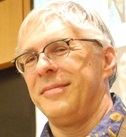2: המגוון והמקורות של החיים
- Page ID
- 208128
Biology is the science of organisms, how organisms function, behave, interact, adapt, and, as populations, have and can evolve. As we will see, organisms are discrete, highly organized, bounded but open, non-equilibrium, physicochemical systems. Now that is a lot of words, so the question is what do they mean? How is a rock different from a mushroom that looks like a rock? What exactly, for example, is a bounded, non-equilibrium system? The answers are not simple; they assume a working knowledge of thermodynamics, a complex topic that we address in Chapter 5. For the moment, when we talk about a non-equilibrium system, we mean a system that can do various forms of work. Of course that means we have to define what we mean by work. For simplicity, we will start by defining work as some outcome that takes the input of energy to achieve. In the context of biological systems, work ranges from generating and maintaining molecular gradients and driving other unfavorable, that is energy-requiring reactions, such as the synthesis of a wide range of biomolecules, including nucleic acids, proteins, lipids, and carbohydrates, required for growth, reproduction, the generation of movement, and so on.
- 2.0: מבוא
- בו אנו שוקלים במה מדובר בביולוגיה, כלומר אורגניזמים והמגוון שלהם. אנו מגלים שאורגניזמים בנויים מתא אחד או יותר, לפעמים רבים הפועלים בצורה מתואמת (חברתית). אנו רואים את מקורות האורגניזמים, את תכונותיהם הבסיסיות ואת מערכות היחסים שלהם זה עם זה.


